“Until now, when I listen to songs written about Uncle Ho, I still feel moved and excited in my heart. Our generation, whose childhood was closely associated with revolutionary songs, especially knows by heart the simple, familiar yet proud lyrics in songs written about children's love for the father of the nation.”
That is the emotional sharing of Ms. Phuong Lan, in Lieu Giai ward, Ba Dinh, Hanoi . For this woman of the 7X generation, songs like Who loves Uncle Ho Chi Minh more than children, Last night I dreamed of meeting Uncle Ho, From the green forest I came back to visit Uncle Ho's mausoleum, or As if there was Uncle Ho on the day of great victory... are not just music .
“ Every time I hear those melodies, my childhood memories come flooding back, reminding me of my years at the village school, playing hide-and-seek on giant straw mushrooms, playing shuttlecock and marbles… Although I love to play, I still try to be obedient and study well to be awarded the certificate of Uncle Ho's Good Child by the school,” said Ms. Phuong Lan.
Classic songs from the historical context of 1945
Indeed, listening to children’s songs about President Ho Chi Minh always makes previous generations feel moved and nostalgic. Because those songs are witnesses to a heroic period of history. And music is also a way to educate and nurture patriotism and gratitude towards the great leader of the nation.
Songs written about Uncle Ho, especially in children's programs, often evoke deep and positive emotions, arousing pride in national history and culture; bringing a feeling of warmth, intimacy and closeness; feeling respect and admiration for Uncle Ho.
On the occasion of International Children's Day June 1, on the evening of May 31, 1969, at the Presidential Palace, President Ho Chi Minh and children of the capital watched a performance to welcome Uncle Ho. (Photo: VNA)
In particular, these songs also bring lessons about morality, patriotism, responsibility and remind us of beautiful memories. Depending on each song and individual experience, each listener has different emotions.
“Who loves Uncle Ho Chi Minh more than children” by musician Phong Nha, composed in 1945, has become one of the classic songs about Uncle Ho. The image of the great President appears as a beloved grandfather and father through simple, pure and close lyrics: “Our Uncle has a tall figure, a slim figure/ Our Uncle has eyes like stars, a slightly long beard.”
Over the past 80 years, every time the melody and lyrics are sung, they still make the hearts of many generations of Vietnamese children vibrate with deep emotions.
Contemporary musician Phong Nha once shared that the inspiration for composing this song came from the scene at Ba Dinh Square, listening to President Ho Chi Minh read the Declaration of Independence on September 2, 1945. He saw his grandchildren standing and shouting "Long live Ho Chi Minh", Uncle Ho leaned out and waved with both hands, as intimate as a beloved grandfather to his grandchildren.
That moment made the late musician extremely moved because Uncle Ho was a President but to the children he was like a gentle grandfather. The musician then felt the need to write a song about Uncle Ho with a very close and affectionate spirit, expressed in a melody full of passion, respect and trust.
President Ho Chi Minh with the Inter-Zone X children's art troupe and the cadet team came to celebrate his 60th birthday at the Viet Bac resistance base, May 19, 1950. (Photo: VNA archive)
Later, during a team meeting, he heard the leader quiz the children, “Who loves Uncle Ho the most?” The children said that children loved Uncle Ho the most and together they shouted, “Uncle Ho loves children the most and children love Uncle Ho the most…” The talented musician had an idea and developed it into the classic song, “Who loves Uncle Ho Chi Minh more than children?”
Go with the years
In the history of musical compositions about President Ho Chi Minh, perhaps the songs expressing children's feelings for him have become a priceless treasure. In harmony with the spirit of the times, in the special context of the country's history, many musicians have created works for life.
And the younger generations, every May, on Uncle Ho's birthday, have the opportunity to remember stories about him, listen to songs about him in team activities, school activities...
To Linh, a student in class 2H at the Experimental Elementary, Middle and High School of Educational Sciences, said that in May, during each activity hour, the students will be given a review of the 5 teachings of Uncle Ho by their "brothers and sisters" and guided to sing songs about Uncle Ho.
“Last night I dreamed I met Uncle Ho/ His beard was long and his hair was white/ I tenderly kissed his cheeks/ When I was happy with him, I danced and sang…” To Linh hummed and said she had known this song since kindergarten.
Students of Trung Vuong High School (Hanoi) came to celebrate President Ho Chi Minh's birthday, May 19, 1956. (Photo: VNA archive)
The late musician Xuan Giao wrote the immortal song “ Last Night I Dreamed of Meeting Uncle Ho” in 1969, just a few days after President Ho passed away. At that time, musician Xuan Giao recalled the memory of meeting Uncle Ho at the age of 15 (in 1946) in Hai Phong, and just like that, the simple lyrics flowed out like a dream of meeting him again.
It was the painful, regretful feeling of loss mixed with the nation's pain when hearing the news of President Ho's death that urged him to write simple notes expressing the children's longing and gratitude for Uncle Ho. After 56 springs, the song's vitality remains intact as it was in the beginning.
And then six years after Uncle Ho passed away, in the joy of the great victory of the nation, the day of the Liberation of the South and the reunification of the country, musician Pham Tuyen wrote "As if Uncle Ho were here on the day of great victory" to express the happiness of all the people.
Composed in just 2 hours on the night of April 28, 1975 and recorded on the afternoon of April 30 to be broadcast in time to celebrate the reunification day on Voice of Vietnam Radio, this song later became a symbol of the joy of the Vietnamese people's victory in the struggle for independence and freedom.
President Ho Chi Minh welcomed children at the Presidential Palace on the Mid-Autumn Festival in 1961. (Photo: VNA)
“As if Uncle Ho were here on the day of great victory/ Uncle Ho's words have now become a glorious victory/ Thirty years of fighting to regain the integrity of the country/ Thirty years of the democratic republican resistance have succeeded/ Vietnam Ho Chi Minh/ Vietnam Ho Chi Minh/ Vietnam Ho Chi Minh/ Vietnam Ho Chi Minh.”
The melody is heroic but familiar, the lyrics are concise and short, both the title and the content of the song are less than 60 words, so many generations of Vietnamese people "know by heart" the song and sing it loudly on many commemorative occasions. It can be said that even though half a century has passed, those heroic and simple lyrics are still like an everlasting cheer.
The flow of emotions about Uncle Ho continued to flow until 1978 with the song "From the green forest, I come back to visit Uncle Ho's mausoleum," composed by the two musician brothers Hoang Long and Hoang Lan, once again conveying the love of children when they visited Uncle Ho's mausoleum in Ba Dinh Square.
“Coming from a distant village/ My feet walk over many mountains/ The mountains follow the rustling leaves of the forest/ My feet walk over many passes…/ The mountains want to ask, the streams ask, why are you so happy, little friend?/ Please tell me!/ I am so excited, I am so happy/ Today I get to return to the beloved Capital/ To visit Uncle Ho's mausoleum.”
Uncle Ho had a lot of affection for children (Viet Bac, 1950). (Photo: VNA documents)
The cheerful melody and gentle, pure lyrics of the song spoke for the children to express their joy when they were able to visit Uncle Ho in the capital. Each lyric was like each small, joyful step under the Ba Dinh sun.
Musician Tran Viet Binh (born in 1934) said that it was thanks to the song "Who loves Uncle Ho Chi Minh more than children" that he had beautiful memories of Uncle Ho.
In September 1946, 12-year-old Tran Viet Binh, a choirmaster and platoon leader of the Young Pioneers of the Thai Binh Children's Team, was honored to sing this song for Uncle Ho. Mr. Binh still remembers that when he sang the line "Our Uncle is tall and slim/ Our Uncle has eyes like stars, a slightly long beard" , Uncle Ho used a handkerchief to wipe his tears.
“After the performance ended, Uncle Ho patted my head and said: 'You sang very well. When you go home, you must study well, be good, and listen to your grandparents and parents,'” Mr. Binh said.
In 1963, musician Tran Viet Binh was 29 years old, in charge of the Vang Anh team (of the Voice of Vietnam Radio) when he was mobilized to perform to welcome Uncle Ho to the Nam Dinh Textile Factory. He played the accordion to the song "We met Ms. Vo Thi Sau" which he wrote in 1961.
Mr. Binh said that meeting Uncle Ho twice was a great source of motivation and spiritual strength for him to nurture his passion for music. Later, he also wrote many more children's songs, including "Good Nephew of Uncle Ho" which won the prize in the "Songwriting for Children" contest in 2021 organized by the Central Council of the Young Pioneers and the Central Youth Union.
“During his lifetime, Uncle Ho had a lot of affection for children, so the songs about Uncle Ho and children are very rich, there are many good songs and they play an important role in Vietnamese music,” said Mr. Binh.
Musician Tran Viet Binh currently lives in Dong Nai. (Photo: FBNV)
Musician Tran Viet Binh always believes that composing for children has its own difficulties, especially how to make sure that children do not get bored. To do so, the writer must look, contemplate, think, and feel the world through the simple yet innocent lens of children.
“The hardest part of writing songs for children is understanding how children perceive the world around them. The songs may be short, but they are cleverly and gently embedded with lessons that teach life skills and manners to children,” the musician shared.
Songs written about children’s love for Uncle Ho Chi Minh have become an important part of the treasure trove of Vietnamese music, culture and history. Those soulful yet bright lyrics are still loved and sung to this day, especially during the months of May./.
(Vietnam+)
Source: https://www.vietnamplus.vn/thieu-nhi-voi-bac-ho-nhung-bai-ca-song-mai-cung-nam-thang-post1039153.vnp


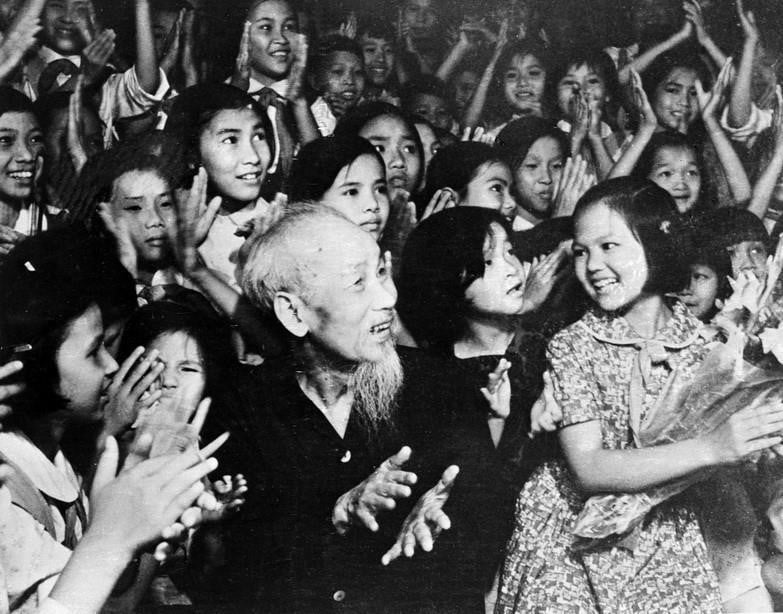
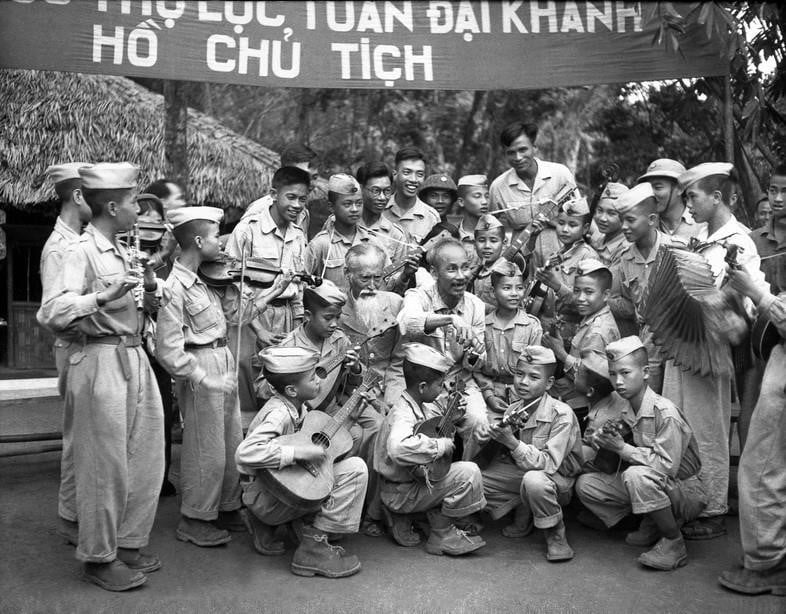
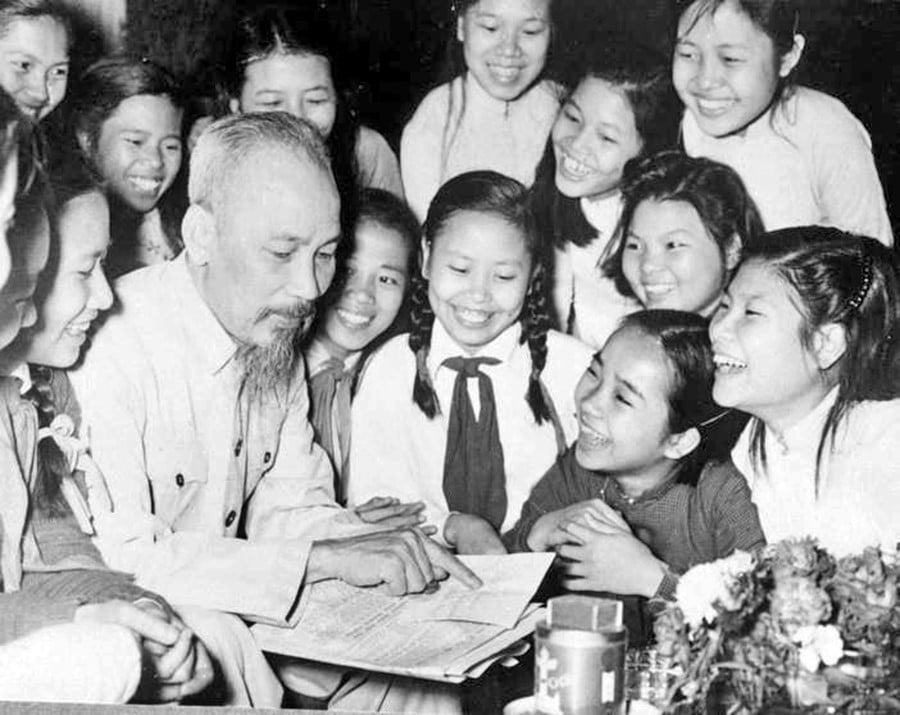
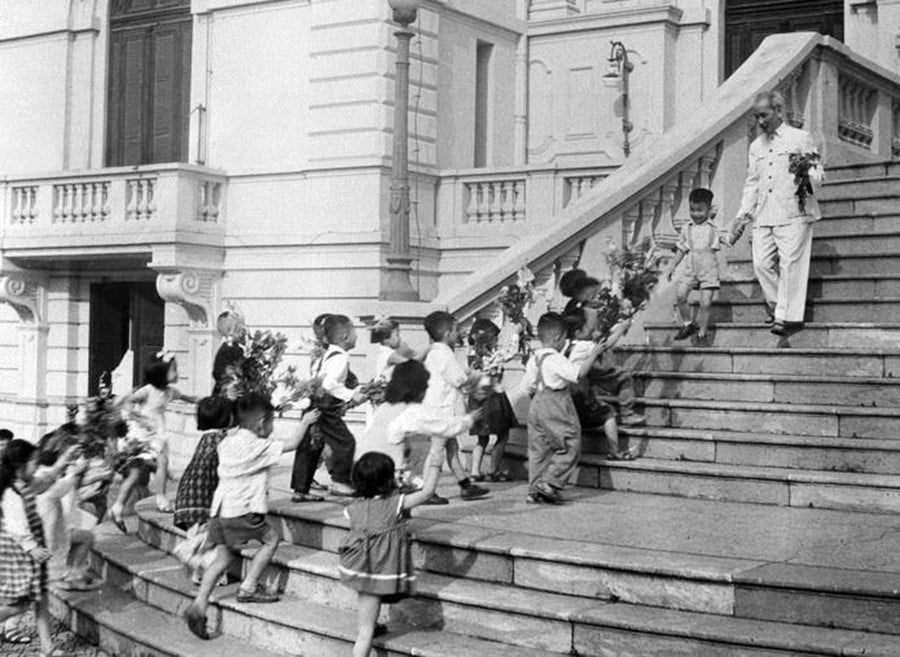
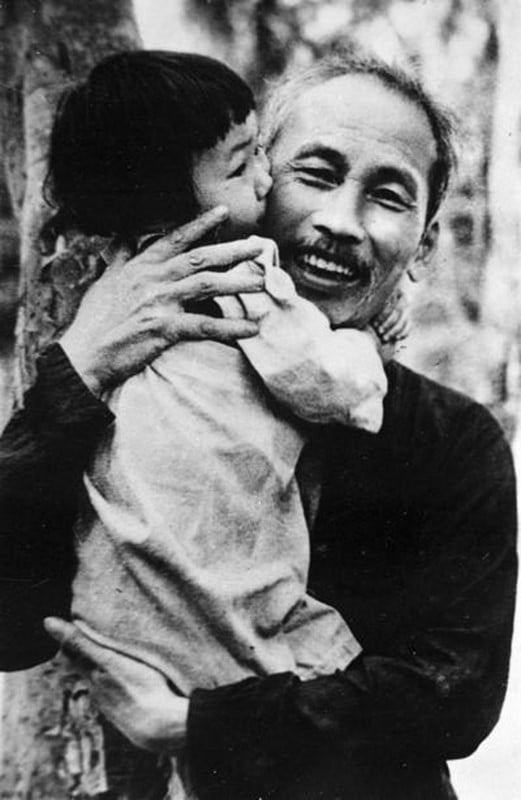
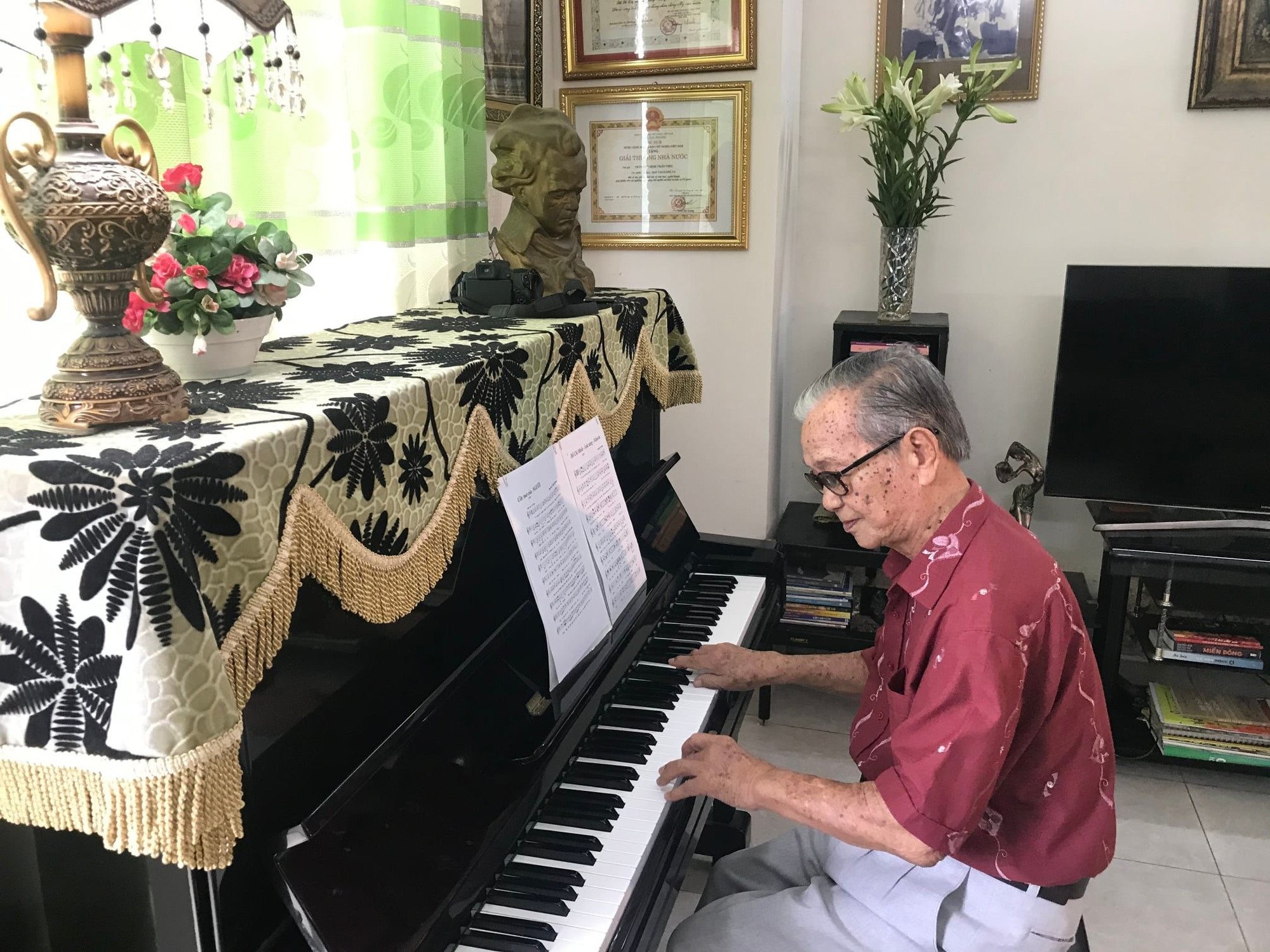
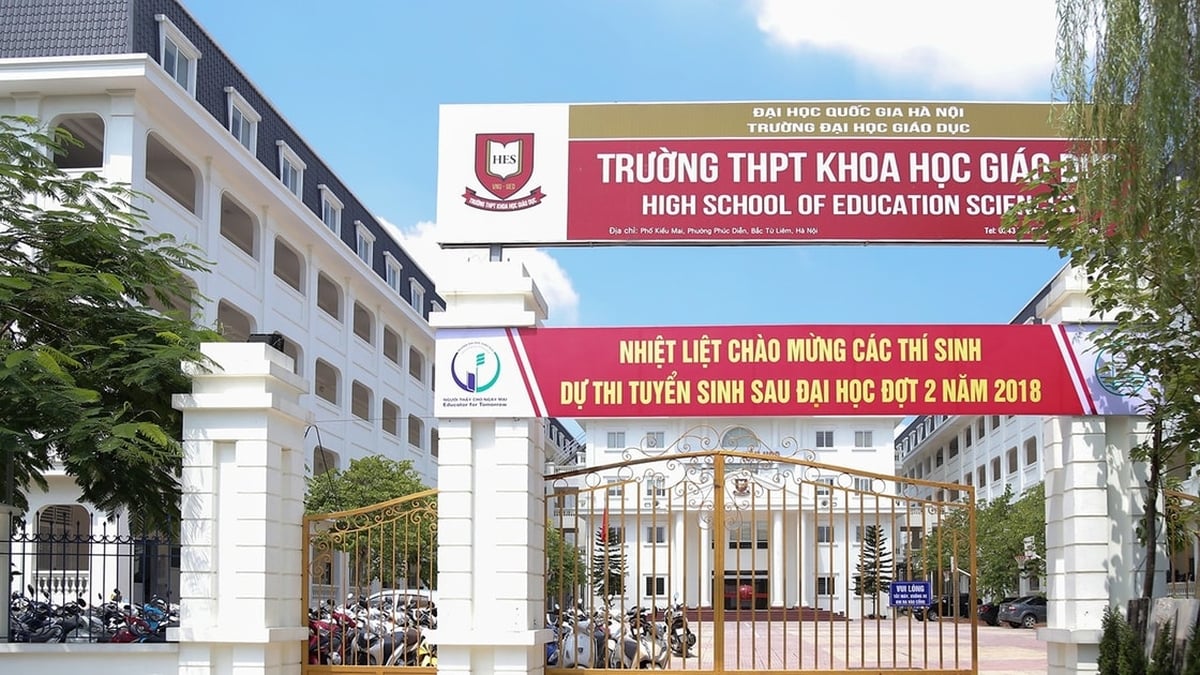
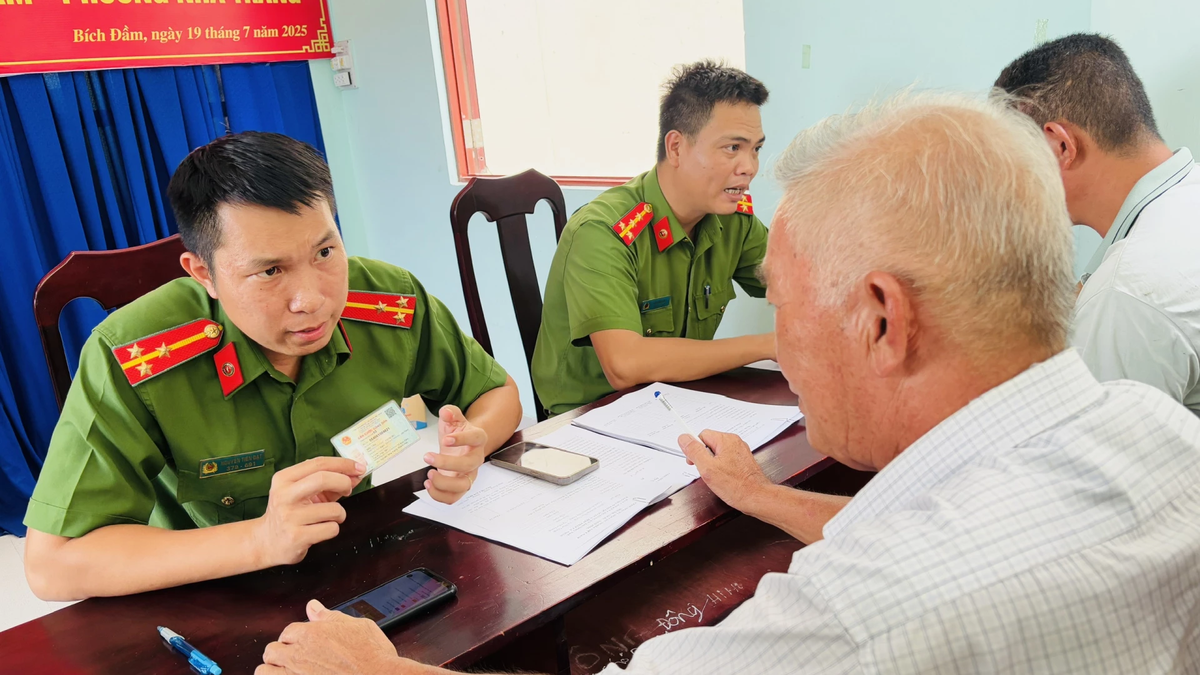

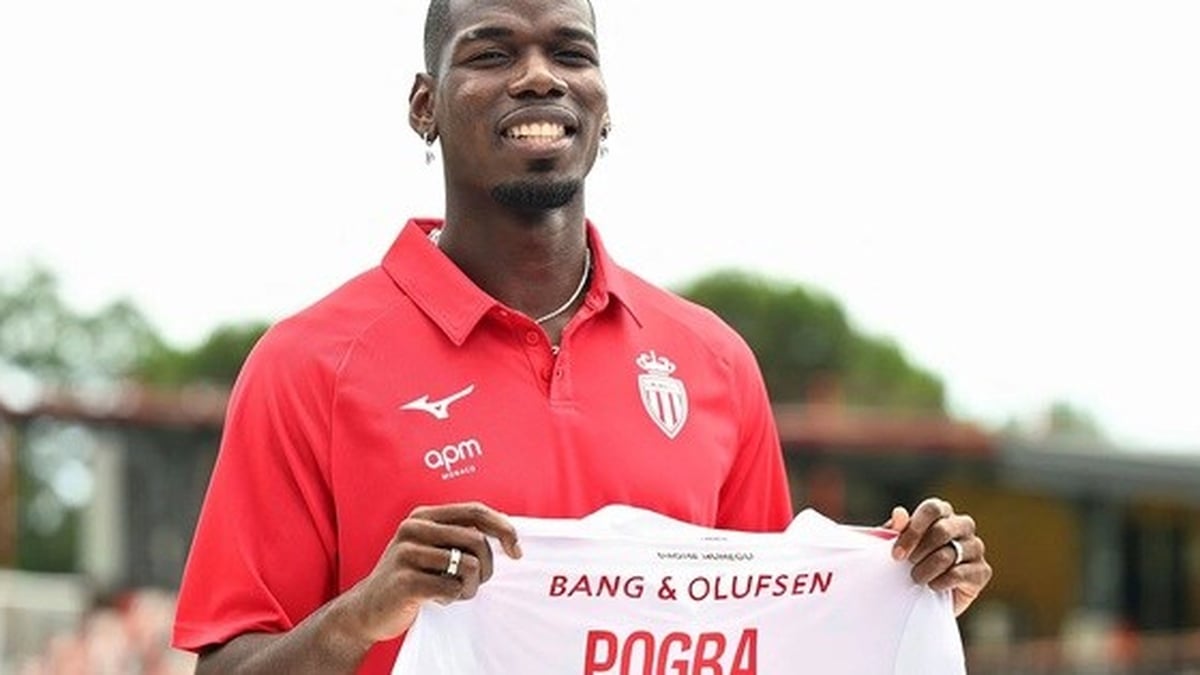
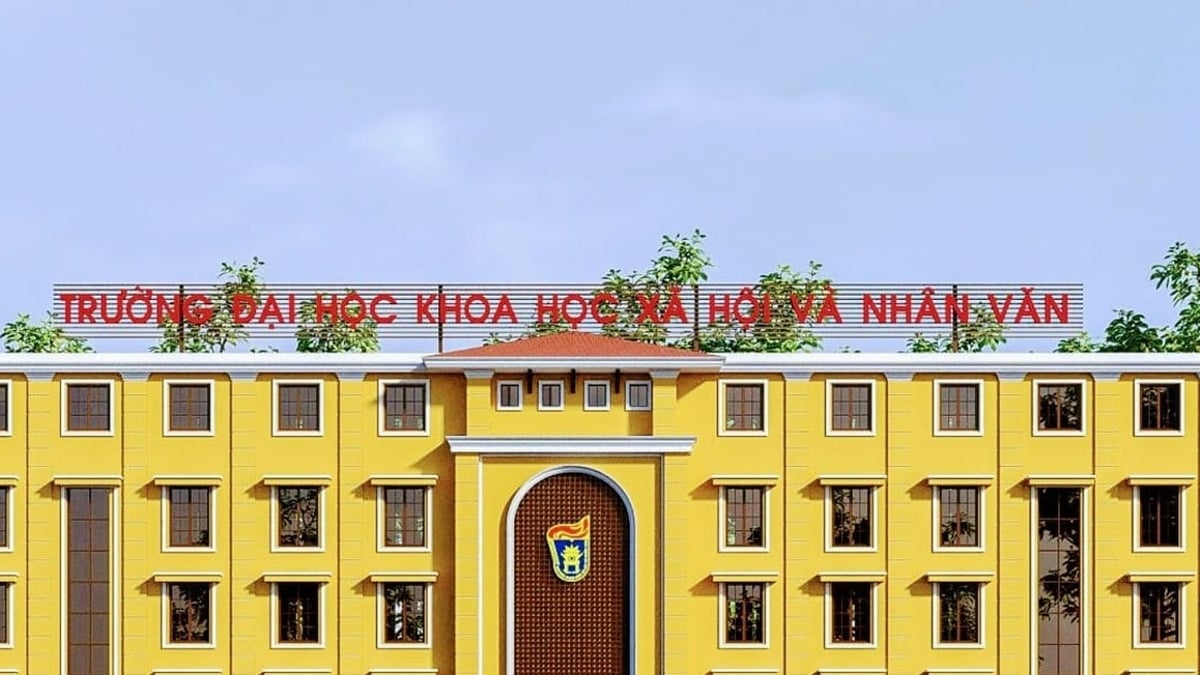

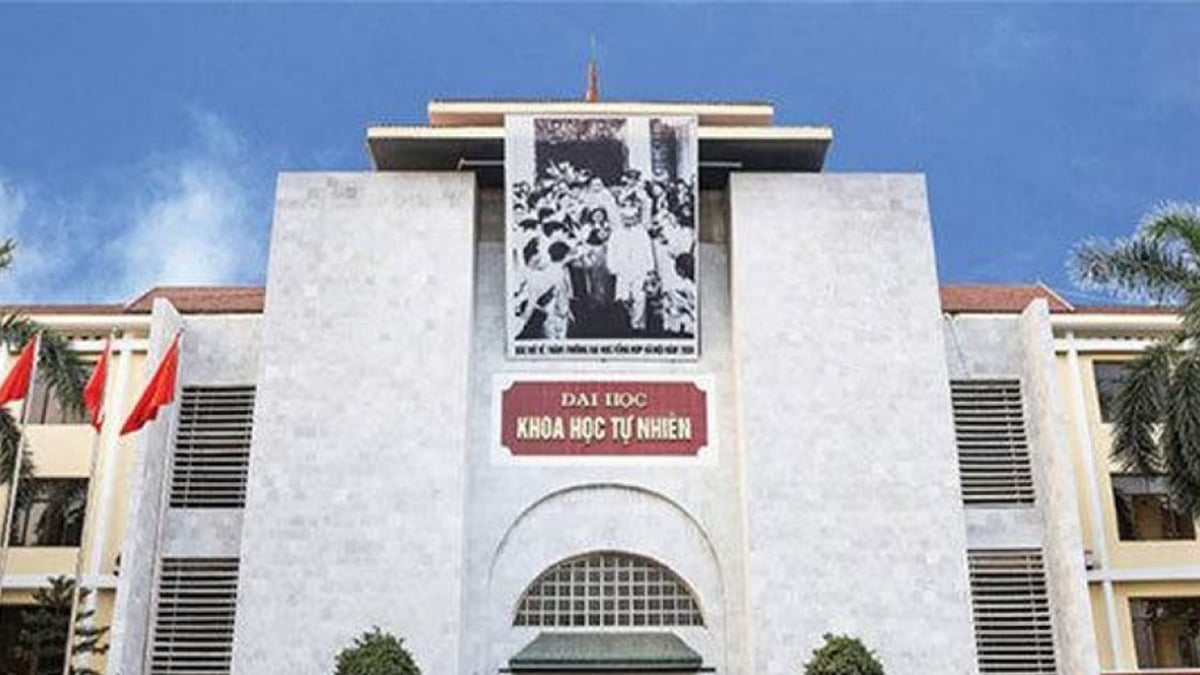
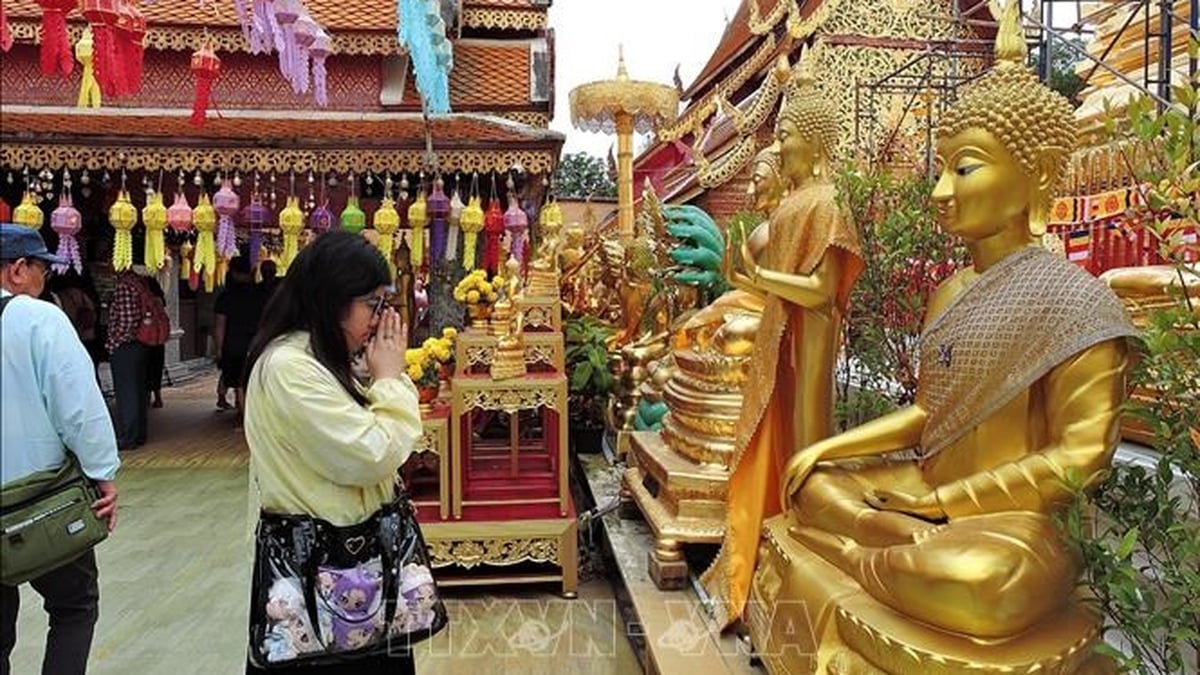
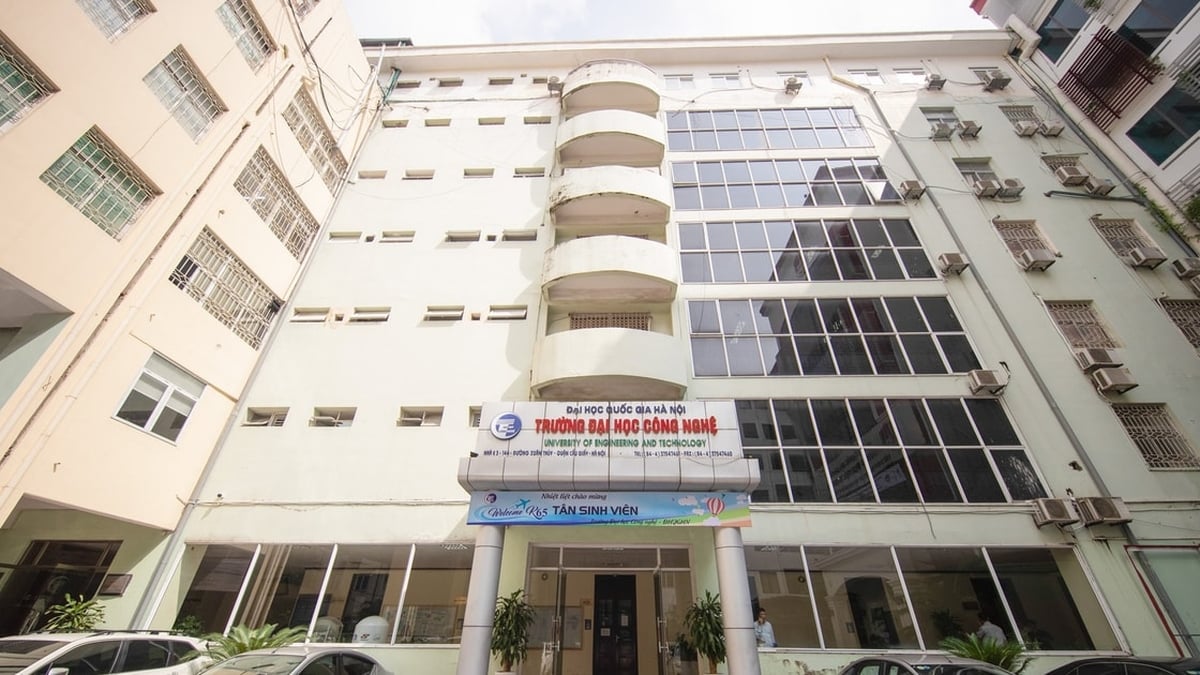














![[Photo] National Assembly Chairman Tran Thanh Man visits Vietnamese Heroic Mother Ta Thi Tran](https://vphoto.vietnam.vn/thumb/1200x675/vietnam/resource/IMAGE/2025/7/20/765c0bd057dd44ad83ab89fe0255b783)







































































Comment (0)